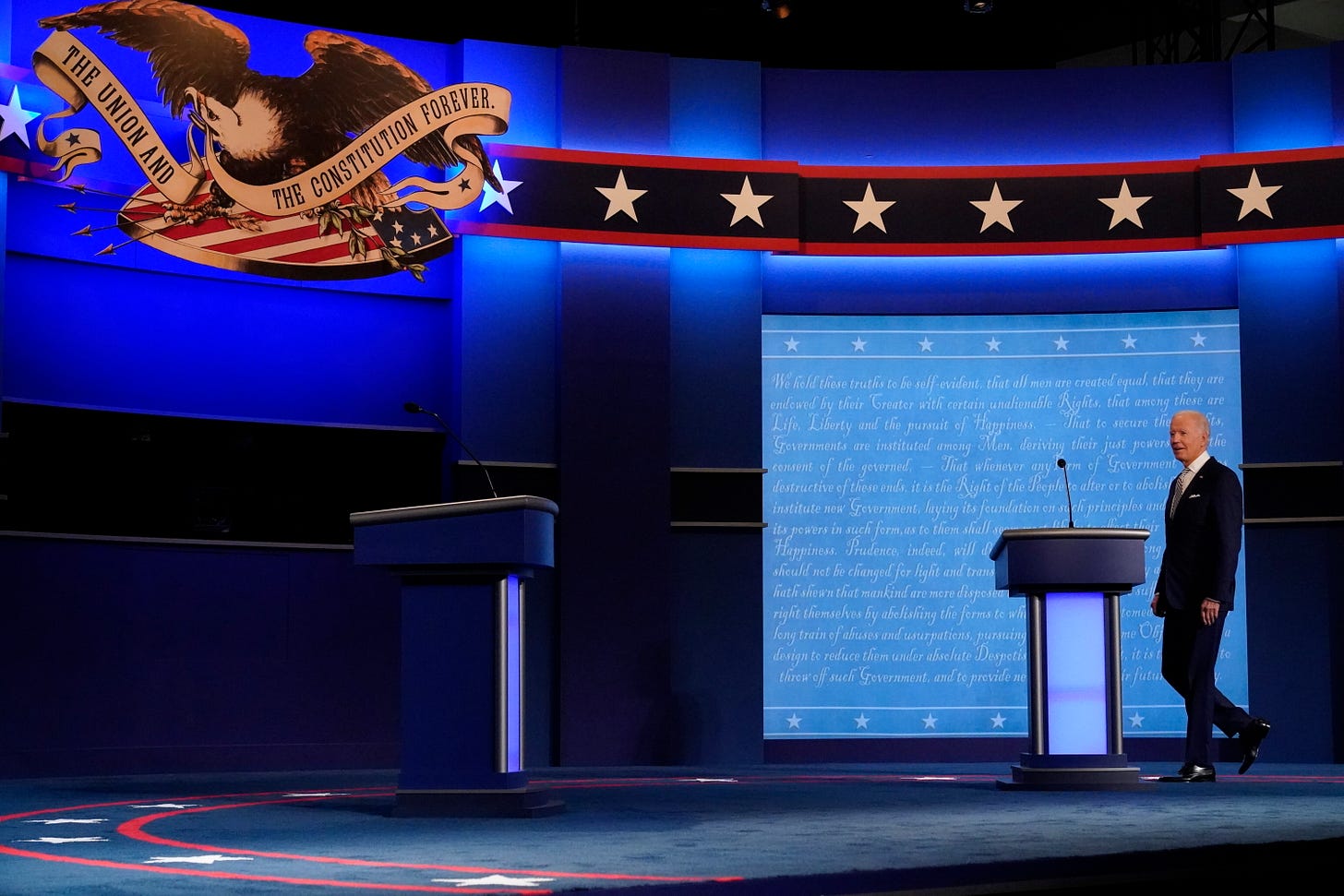Changing the debate rules now is a bad idea
It's going to open a whole can of worms for the Commission on Presidential Debates.

The Commission on Presidential Debates is playing with fire.
On Wednesday, following a chaotic showdown between President Trump and Democratic nominee Joe Biden, the commission announced its plan to implement new debate rules.
Bad move. By modifying the format now, as opposed to after the election, and announcing it publicly after the very first debate, the commission is setting itself up to be attacked as a partisan entity.
“The Commission on Presidential Debates sponsors televised debates for the benefit of the American electorate,” the group announced in a statement provided to media. “Last night’s debate made clear that additional structure should be added to the format of the remaining debates to ensure a more orderly discussion of the issues.”
It adds, “The CPD will be carefully considering the changes that it will adopt and will announce those measures shortly. The commission is grateful to Chris Wallace for the professionalism and skill he brought to last night’s debate and intends to ensure that additional tools to maintain order are in place for the remaining debates.”
Though the statement does not mention Trump by name, members of the press claim nevertheless that the move toward a rules change is absolutely a direct response to his boorish behavior on Tuesday evening.
“This scramble to rework debate structure is happening because one candidate — the sitting president of the United States — didn’t abide by rules he'd agreed to,” claimed Politico’sNancy Scola.
Said the Washington Post’sEric Wemple, “Trump's bullying behavior last night has prompted the Commission on Presidential Debates to release this statement.”
MSNBC contributor Joyce Alene adds, “The problem is, when a player in a game wants to win so badly that he's willing to break all the rules, adding more won't help. Trump's approach to governing is the same as his approach to the debate, willing to break all the rules to win, consequences to our democracy be damned.”
Well, yes, Trump’s conduct is most likely a big reason for the commission’s announcement. Biden’s behavior, including calling the president a “racist,” a “liar,” a “clown,” the “worst president America has ever had,” telling the president to “shut up,” to “keep yapping,” etc., also likely played a role in the decision. But that is not the point. The point is the commission threatens its own legitimacy by announcing these changes amid the 2020 campaign season.
Let me explain it this way: In 2012, during the vice-presidential debate, Biden’s strategy for shutting down then-Republican Rep. Paul Ryan of Wisconsin consisted entirely of performative cackling, interruptions, hand-waving, and eye-rolling. It worked. Ryan spent most of the evening simply trying to get a word in edgewise. Even debate moderator Martha Raddatz appeared flustered by Biden's strategy.
The commission said nothing.
The debate came and went. President Barack Obama and Biden won another four years in the White House.
But now, if that exact 2012 scenario were to play out, say, in the next year or so, viewers would question inaction by the commission. And why not? It showed in 2020 that some behavior is apparently unacceptable — unacceptable enough to merit an immediate rules change. It is now just a matter of determining where the line is, and viewers and the commission are not always going to see eye-to-eye. Because of the group’s announcement this week, people will ask for future debates, “if you were willing to change for X, then why not Y?"
The commission better prepare. It will absolutely face this question going forward, especially when a debate does not go in one team’s favor.
The commission obviously has the right to change its rules. It has the right to do so its discretion. But it also probably should have waited until after the 2020 election to do anything about the handling of future presidential debates. Instead, it announced that it will implement new rules effective immediately, giving the impression that is acting specifically against one candidate, as members of the press certainly believe it is.
And just like that, the commission is in danger of becoming yet another institution suspected of partisan allegiances.



